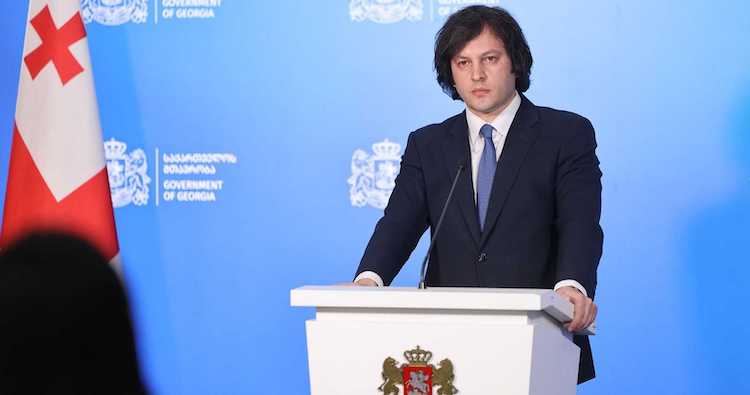Georgian PM says country’s “peaceful and stable development” to continue amid “short-term fluctuations”

Georgian Prime Minister Irakli Kobakhidze on Thursday said the country's “peaceful and stable development” would continue “despite recent short-term fluctuations” in the national economy amid ongoing public protests against the Government’s suspension of European Union accession talks. Photo: Gov't Administration
Georgian Prime Minister Irakli Kobakhidze on Thursday said the country's “peaceful and stable development” would continue “despite recent short-term fluctuations” in the national economy amid ongoing public protests against the Government’s suspension of European Union accession talks.
Speaking at a press conference earlier today, the Prime Minister emphasised the development of the economy was “not under threat”, citing a recovery in the exchange rate of the national currency, the lari.
The peaceful and stable development of our country will continue. As you know, such processes can sometimes lead to short-term fluctuations. There was a temporary impact on the exchange rate of the lari, however, as soon as the violence ceased, the rate began to decline. Today, you can observe that the exchange rate, which had risen for a few days, has already decreased by a few tetri”, Kobakhidze said.
This pattern has repeated itself every time. Over the past four years, we have experienced four attempts of [staging a] UNM Maidan [in reference to what he has alleged are domestic United National Movement opposition’s plans to cause events similar to the Maidan protests in Ukraine between 2013-2014]. During each of these attempts, the exchange rate went up, but once the situation stabilised, it promptly went back down. We are witnessing the same situation now”, he added.
The Prime Minister further highlighted the 10 percent growth rate of the economy based on data from the first 10 months of 2024, which he said placed Georgia “at the forefront” of growth in Europe and the wider region.
We will reach a very high rate by the end of the year", he said, expressing confidence that the growth would continue into the next year.
Asked about the lari exchange rate, Kobakhidze noted an “effective” handling of the situation by the National Bank of Georgia, attributing part of the currency's stabilisation to their “proactive measures” and the “overall political environment”.
The National Bank is working very well, it should be noted [...] There was no need for any substantial intervention; as soon as the political situation stabilised, the exchange rate immediately came down", he explained.
The Prime Minister thanked the Bank and its Acting Governor Natia Turnava for their “efficient response in maintaining the stability” of the currency.
 Tweet
Tweet  Share
Share